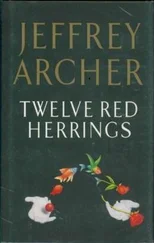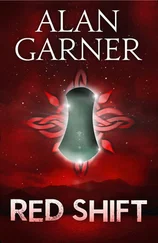Alan Bradley - A Red Herring Without Mustard - A Flavia de Luce Novel
Здесь есть возможность читать онлайн «Alan Bradley - A Red Herring Without Mustard - A Flavia de Luce Novel» весь текст электронной книги совершенно бесплатно (целиком полную версию без сокращений). В некоторых случаях можно слушать аудио, скачать через торрент в формате fb2 и присутствует краткое содержание. Жанр: Старинная литература, на русском языке. Описание произведения, (предисловие) а так же отзывы посетителей доступны на портале библиотеки ЛибКат.
- Название:A Red Herring Without Mustard: A Flavia de Luce Novel
- Автор:
- Жанр:
- Год:неизвестен
- ISBN:нет данных
- Рейтинг книги:4 / 5. Голосов: 1
-
Избранное:Добавить в избранное
- Отзывы:
-
Ваша оценка:
- 80
- 1
- 2
- 3
- 4
- 5
A Red Herring Without Mustard: A Flavia de Luce Novel: краткое содержание, описание и аннотация
Предлагаем к чтению аннотацию, описание, краткое содержание или предисловие (зависит от того, что написал сам автор книги «A Red Herring Without Mustard: A Flavia de Luce Novel»). Если вы не нашли необходимую информацию о книге — напишите в комментариях, мы постараемся отыскать её.
A Red Herring Without Mustard: A Flavia de Luce Novel — читать онлайн бесплатно полную книгу (весь текст) целиком
Ниже представлен текст книги, разбитый по страницам. Система сохранения места последней прочитанной страницы, позволяет с удобством читать онлайн бесплатно книгу «A Red Herring Without Mustard: A Flavia de Luce Novel», без необходимости каждый раз заново искать на чём Вы остановились. Поставьте закладку, и сможете в любой момент перейти на страницу, на которой закончили чтение.
Интервал:
Закладка:
“Well?” he said, as if I had surprised him in his bath.
“Excuse me,” I said. “I wonder if you can help me? I’m looking for Mr. Sampson—Edward Sampson. Could you tell me where he lives?”
“What you want with him, then? Selling biscuits, are you?”
His mouth broke into a ghastly grin, revealing three horrid teeth which appeared to be carved from rotted wood.
It was the same thing, more or less, that the abominable Ursula had said to me at Vanetta Harewood’s door: a bad joke that was doing the rounds of the countryside, the way bad jokes do.
I held my tongue.
“Selling biscuits, are you?” he said again, like a music hall comic beating a joke to death.
“Actually, no,” I said. “Mr. Sampson’s parents are buried in St. Tancred’s churchyard, in Bishop’s Lacey, and we’re setting up a Graves Maintenance Fund. It’s the war, you see … We thought that perhaps he’d like to—”
The man stared at me skeptically over his spectacles. I was going to have to do better than this.
“Oh, yes—I almost forgot. I also bring thanks from the vicar and the ladies of the Women’s Institute—and the Altar Guild—for Mr. Sampson’s help with the fête on Saturday. It was a smashing success.”
I think it was the WI and the Altar Guild that did it. The tobacconist wrinkled his nose in disgust, hitched his spectacles a little higher, and jabbed his thumb towards the street.
“Yellow fence,” he said. “Salvage,” and went back to his reading.
“Thank you,” I said. “You’re very kind.”
And I almost meant it.

The place was hard to miss. A tall wooden fence, in a shade of yellow that betrayed the use of war surplus aviation paint, sagged inwards and outwards along three sides of a large property.
It was evident that the fence had been thrown up in an attempt to hide from the street the ugliness of the salvage business, but with little effect. Behind its boards, piles of rusting metal scrap towered into the air like heaps of giant jackstraws.
On the fence tall red letters, painted by an obviously amateur hand, spelled out: SAMPSON—SALVAGE—SCRAP IRON BOUGHT—BEST PRICES—MOTOR PARTS.
An iron rod leant against the double gates, holding them shut. I put my eye to the crack and peered inside.
Maddeningly, there wasn’t much to see—because of the angle, my view was blocked by a wrecked lorry that had been overturned and its wheels removed.
With a quick glance up and down the street, I shifted the rod, tugged the gates open a bit, took a deep breath, and squeezed through.
Immediately in front of me, a sign painted in blood-red letters on the hulk of a pantechnicon said BEWARE OF THE DOC—as if the animal in question had gone for the artist’s throat before he could finish the letter G .
I stopped in my tracks and listened, but there was no sign of the beast. Perhaps the warning was meant simply to scare off strangers.
On one side of the yard was a good-sized Nissen hut which, judging by the tire tracks leading to its double doors, was in regular use. To my right, like a row of iron oasthouses, the towering junk piles I had seen from outside the gates led away towards the back of the lot. Projecting from the closest heap—as if it had just crashed and embedded itself—was what surely must be the back half of a Spitfire, the red, white, and blue RAF markings as fresh and bright as if they had been applied just yesterday.
The fence had concealed the size of the place—it must have covered a couple of acres. Beyond the mountains of scrap, spotted here and there, scores of wrecked motorcars subsided sadly into the grass, and even at the back of the property, where the scrap gave way gradually to an orchard, blotches of colored metal glinting among the trees signaled that there were bodies there, too.
As I moved warily along the gravel path between the heaps of broken machinery, hidden things gave off an occasional rusty ping as if they were trying to warm themselves enough in the sun to come back to life—but with little success.
“Hello?” I called, hoping desperately that there would be no answer—and there wasn’t.
At the end of an L-shaped bend in the gravel was a brick structure: rather like a washhouse, I thought, or perhaps a laundry, with a round chimney rising up about thirty feet above its flat roof.
The windows were so coated with grime that even by rubbing with my fist, I could see nothing inside. In place of a knob, the door was furnished with what looked like a homemade latch: something cobbled together from bits of iron fencing.
I put my thumb on the tongue of the thing and pressed it down. The latch popped up, the door swung open, and I stepped into the dim interior.
The place was unexpectedly bare. On one side was a large fire chamber whose open door revealed a bottom covered with cold ashes and cinders. On its side was mounted what appeared to be a motor-driven blower.
These things hadn’t changed in four or five hundred years, I thought. Aside from the electric fan, there was little difference between this device and the crucibles of the alchemists that filled the pages of several vellum manuscripts in Uncle Tar’s library.
In essence, this furnace was not unlike the gas crucible that Uncle Tar had installed in the laboratory at Buckshaw, but on a much larger scale, of course.
On the brick hearth in front of the furnace, beside a long steel ladle, lay several broken molds: wooden chests that had been filled with sand into which objects had been pressed to make an impression—into which the molten iron had then been poured.
Dogs, by the look of them , I thought. Spaniels indented in the sand to make a pair of doorstops .
Or firedogs.
And I knew then, even though I had not yet had a chance to test them for authenticity, that it was here, in Edward Sampson’s washhouse foundry, that copies of Sally Fox and Shoppo had been cast: the copies that were likely, at this very moment, standing in for the originals on the drawing-room hearth at Buckshaw.
But where were Harriet’s originals? Were they the fire irons I had seen in Miss Mountjoy’s coach house—the antiques warehouse in which Brookie Harewood kept his treasure? Or were they the ones I had seen in the hands of Sampson, the bulldog man, at the back door of Pettibone’s antiques shop? I shuddered at the very thought of it.
Still, I had already accomplished much of what I had come to do. All that remained was to search the Nissen hut for papers. With any luck, a familiar name might well pop up.
At that moment I heard the sound of a motor outside.
I glanced quickly round the room. Save for diving into the cold furnace, there was nowhere to hide. The only alternative was to dash out into the open and make a run for it.
I chose the furnace.
Thoughts of Hansel and Gretel crossed my mind as I pulled the heavy door shut behind me and crouched, trying to make myself as small as possible.
Another dress ruined , I thought—and another sad-eyed lecture from Father.
It was then that I heard the footsteps on the stone floor.
I hardly dared take a breath—the sound of it would be amplified grotesquely by the brick beehive in which I was huddled.
The footsteps paused, as if the person outside were listening.
They moved on … then stopped again.
There was a metallic CLANG as something touched the door just inches from my face. And then, slowly … so slowly that I nearly screamed from suspense … the door swung open.
The first thing I saw was his boots: large, dusty, scarred from work.
Then the leg of his coveralls.
Читать дальшеИнтервал:
Закладка:
Похожие книги на «A Red Herring Without Mustard: A Flavia de Luce Novel»
Представляем Вашему вниманию похожие книги на «A Red Herring Without Mustard: A Flavia de Luce Novel» списком для выбора. Мы отобрали схожую по названию и смыслу литературу в надежде предоставить читателям больше вариантов отыскать новые, интересные, ещё непрочитанные произведения.
Обсуждение, отзывы о книге «A Red Herring Without Mustard: A Flavia de Luce Novel» и просто собственные мнения читателей. Оставьте ваши комментарии, напишите, что Вы думаете о произведении, его смысле или главных героях. Укажите что конкретно понравилось, а что нет, и почему Вы так считаете.












